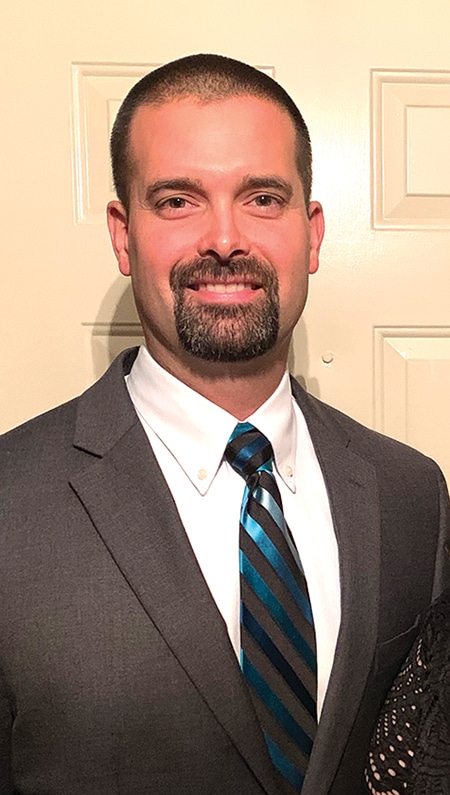By Brian Cook
The Our Father, or The Lord’s Prayer, contains a phrase that has caused many believers over the centuries to scratch their heads: “And lead us not into temptation….”
Lead us not into temptation? Scripture teaches clearly that God cannot sin, be tempted by evil nor tempt anyone to sin (James 1:13). That being clear, we do see Jesus being tempted by Satan from without in Matthew 4, not from within as in James 1:14. Old versions of Scripture highlight that the word for “test” and the word for “tempt” are the same word.
So, in some versions of the Bible it may say that God “tempted” Abraham when God tested him requiring him to sacrifice his “one and only son who he loved” (Gen 22). In this context, we can better understand the phrase “lead me not into temptation” as God not leading us toward possible sin but sparing us from “the “test.” Which leads to the question, what is this test?
“The test” is the test of faith, and we all must face it. We either pass to eternal life or fail to eternal damnation. However, it is not a one-time event; it is a lifetime event. To see an example of the test of faith, we can look back to Genesis 22 as we observe that God called for Abraham’s idol, or at least the one thing that could become his idol. God calls for a sacrifice and challenges Abraham’s love of his son.
But as we shall see, God continually leads His children to the test. He purposefully tests each of our heroes of faith. God at times tests His children in the most painful ways possible. Individualized and personal tests seemingly crafted to ensure that His children have only one God on the throne of their heart, only one God exalted on their lips, only one God surrendered to and only one God being served. This is their only path to true joy, peace and fulfilment. This is, in effect, the path of salvation.
So then, we can confidently translate “Lead us not into temptation” as “Lead me not into testing,” or maybe even better as the heart cry, “Let me not fail the test!” These phrases recognize the necessity of the test and help us know that by God’s grace can we pass. But this test is different for every person called to know Jesus Christ. However, it is the same test for everyone in this regard – it demands from us our gods. Thus, we heed God’s desire in His first Commandment: “Thou shalt have no other gods before Me” (Deuteronomy 5:7), and in Christ’s Great Commandment: “You shall love the Lord your God with all your heart, with all your soul, with all your mind, and with all your strength” (Mark 12:30).
God has a goal, which is to conform us into the image of His Son (Romans 8:29). To do so, we must walk the road of testing. But that journey is not to cause us harm; it is designed so our joy may be complete (John 15:11). If we are to “glorify God and enjoy Him forever,” as the Westminster Shorter Catechism says, idolatry has no place, so much so that even things rightly deserving of our love should seem as hate in comparison (Luke 14:26). To be fully formed in Christ requires enough spiritual challenge that a life of devotion to Him can develop. Jesus calls it the narrow and hard way (Matthew 7:14). We’ve lived long enough to know that everything in life that is good is hard.
Over the next few weeks, we will observe several New Testament stories. We will watch as Jesus leads people to their individual test. Of the four examples in which we will examine, three pass – one fails. They highlight how Jesus calls for one person’s heart, one’s soul, one’s mind and one’s strength, just as He Himself interpreted the First and Great Command. As we look at their stories, may God be gracious to us and tell us our story as well. May He allow us to recognize and give up our gods that He is calling for, that we may have the God we are longing for.
Brian Cook is a Cropwell native and a graduate of Pell City High School, Gadsden State Community College and studied music and history at Jacksonville State. He and his wife Hope have five children. A self-described “on-again-off-again bi-vocational part-time” Protestant minister for almost 20 years, Brian converted to Catholicism in April 2021. They attend Saint James Catholic Church in Gadsden. With no formal training (Acts 4:13), Brian active in the Catechetical training of children and adults. His book “The Devotion to Christ” can be found on Amazon. He is available for speaking and teaching engagements in any parish, church, or group setting. He may be contacted at thedtc@protonmail.com or thedevotiontochrist@gmail.com.




